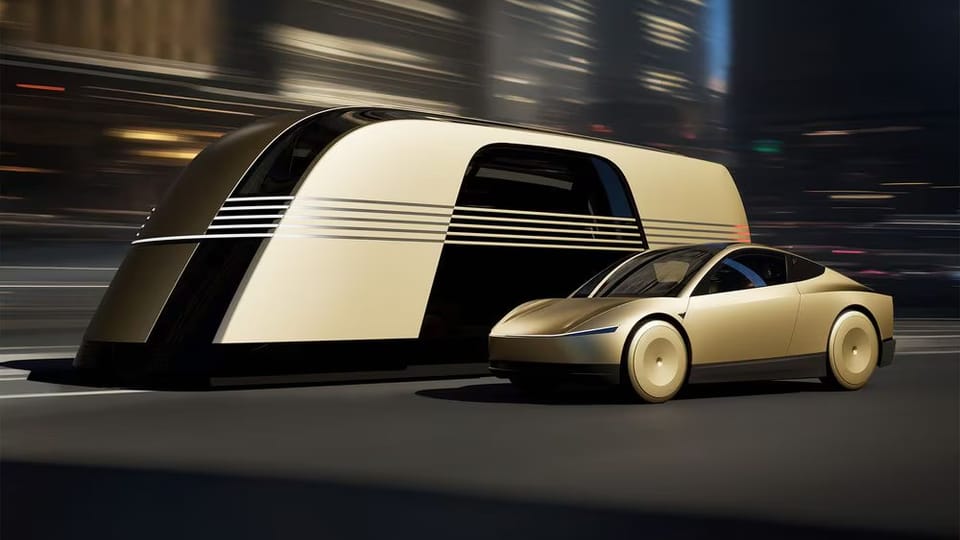Tesla's Tomorrow Never Knows

Look, I want this to work. I want to live in a world where autonomous cars drive us around, freeing up time in the car to do anything else, streamlining traffic, eliminating accidents, perhaps providing new business models for car ownership. And I do think we'll get at least some of that, some day. Do I think that will be 2027? At scale? Absolutely not.
I'm not trying to be a wet blanket here, just trying to be honest and accurate and ultimately correct. Hell, I'm not sure we're going to have a foldable iPhone by 2027, let alone all of these self-driving dreams. This isn't all about Elon Musk, he's just the loudest and most egregious offender of deadlines. You'll recall when Google first unveiled their self driving car – it was almost 14 years ago to the day. As John Markoff wrote at the time, interviewing Sebastian Thrun, who then led the project for Google:
The Google researchers said the company did not yet have a clear plan to create a business from the experiments. Dr. Thrun is known as a passionate promoter of the potential to use robotic vehicles to make highways safer and lower the nation’s energy costs. It is a commitment shared by Larry Page, Google’s co-founder, according to several people familiar with the project.
The self-driving car initiative is an example of Google’s willingness to gamble on technology that may not pay off for years, Dr. Thrun said. Even the most optimistic predictions put the deployment of the technology more than eight years away.
To be fair, it's not entirely clear who was giving those "optimistic predictions" — if it was someone at Google speaking on background or someone else. And yes, it’s couched appropriately with "more than eight years away". And well, Waymo, which Google's project morphed into, is now live in a few cities and started their pilot project in 2022. Twelve years is indeed more than eight years. As is fourteen. When will such a service be available broadly, even just in the US? Impossible to say, but even that may not be a reality by 2027. And this is a project which is up and rolling right now, having cleared many regulatory hurdles.
My point is that this stuff is both hard to do and nearly impossible to predict. And while I think it's all well and good to be optimistic to inspire people and get them to buy in, I'm more than a little worried that Musk's intentions with the buy-in are a bit too literal. As in, the stock price of Tesla. The problem is that he's been the boy crying self-driving wolf for a bit too long now. Nearly every story you read today will note that he's been promising aspects of this technology and project since at least 2016, and basically every year since then, as promised timelines have whooshed by faster than 'Ludicrous Mode' on a Tesla.
At the same time, Musk has done incredible things. There's no denying that. SpaceX, of course, is the prime example of this. He literally willed private companies – and now people – into space and reusable rockets into existence. It's so commonplace now that it's almost easy to overlook how incredible this truly is. And now the offshoot, Starlink, is revolutionizing internet access. Even Tesla itself, even if it didn't fully start with Musk, there's no question he's the one who took electric vehicles mainstream. He gets – and deserves – more benefits of the doubt than anyone since Steve Jobs.
But the doubts are now getting louder in the face of all of this over-promising and under-delivering. And yes, the shitshow that is Xitter, plays into this as well. Tesla’s stock today, despite an actual live showcase and demonstration of the Cybercab – not to mention 'Optimus' humanoid robots and a surprise 'Robovan' – is currently down nearly 9%. Google's stock is up. Uber's stock is up. People don't seem to be buying what Musk is selling. They're selling what they were sold last night.
And that's in part because of when he says he'll be selling it. Again, 2027 – sorry, technically it was "before 2027" for production of the Cybercab, at least – must seem both far away to some investors looking for an answer to Tesla's sales challenges right now and entirely too close to be realistic for others.
It's 2024, which some will remember as the year Elon Musk said we'd be landing on Mars. Now that's an interesting question: which comes first, Cybercab or Mars?
